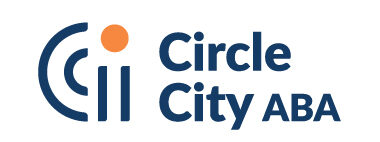Being the parent of a child with autism can be both rewarding and challenging. Unfortunately, teaching flexibility is one of the biggest challenges for parents of children on the spectrum. Children on the spectrum struggle with change, preferring to stick to a routine, and can become easily upset when things don’t go as planned. However, teaching children how to be flexible is essential, as it’s a vital life skill that will help them navigate life.
Circle City ABA’s staff isn’t limited by prescribed treatment plans, programs, or curriculum, so we can meet your child where they are and be nimble when they need to try a new approach. Our approach allows children to learn in large spaces and practice skills in real-time. This blog post will explore helpful tips for teaching flexibility to children with behavioral issues.
Start With Small Changes
When teaching children with autistic behavioral issues flexibility, it’s best to start small. Introducing small changes or variations to their routine can be an excellent place to begin. For example, if your child usually eats a peanut butter and jelly sandwich for lunch, try swapping the jelly for honey or introducing a new food altogether. It’s essential to leave them with manageable changes and approach each change slowly.
Create Visual Schedules
Visual schedules are a great tool that can help children with autism prepare for change. Creating a visual schedule that outlines their daily routine or providing one that outlines specific changes you’d like to introduce can help children with autism feel more secure. When children can see what’s coming next, they are able to understand and follow through on changes.
Social Stories
Social stories help children with autism understand what is happening around them. These stories can be written or illustrated, usually centered around real-life events or experiences. Social stories can help prepare children for changes such as starting a new school, vacationing, or moving to a new home.
Reward Good Behavior
It’s essential to reward good behavior when introducing change or teaching flexibility to a child with autism. Positive reinforcement is an excellent way to encourage children to try new things or accept change. For example, you can give verbal praise or even a small treat when they handle transitions well.
Be Patient
Finally, when teaching flexibility to children with autistic behavioral issues, patience is needed. Children with autism can sometimes take longer to adjust to new situations or routines, so staying calm and not getting frustrated is vital. Celebrate their small successes, and give them plenty of time to adjust to changes slowly.
Remember, it takes time
Teaching flexibility to children with behavioral issues can be challenging, but it’s a vital skill to help children navigate life. Start with small changes and create visual schedules to prepare your child for what’s ahead. Use social stories to help them understand new situations and reward good behavior to help encourage them to try new things. Above all, be patient, understanding, and supportive as your child learns and grows.
About Circle City ABA
Circle City ABA’s child-centered, compassionate approach to therapy brings family goals and clinical best practices in tandem to help kids learn and grow. We’ll work together to define success and then help your child achieve it – whether that’s building social skills, improving communication, or working on activities of daily life. Start your journey with Circle City ABA today!



